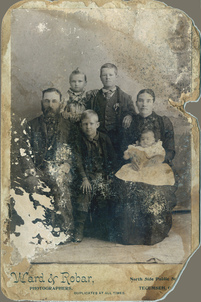
If these four characters ever did want to find some common ground, as well as a common language to discuss it (given that Haoua doesn't speak English), I imagine it would be the painful end of childhood. Haoua's is no doubt the most harrowing and her premature propulsion into the adult role is the primary focus of the novel, but the theme is present in the other novels in my website selection, as well as on my bookshelves. You might argue – and please do – that's because that's what I look for (both Shelley Harris and Charlotte Rogan emphasised in their interviews the contribution of the reader in creating the novel); I'd argue it's because the end of childhood is rife with complications and therefore perfect fodder for fiction.
1. Marriage
Traditionally, marriage was the signifier of adulthood for both men and women. In Ian McEwan's On Chesil Beach, we see how excruciatingly difficult this can be for two educated and intelligent young lovers who have not had the time to learn to live independently of their parents before coming together as a couple. How much harder for Haoua, still a child and grieving for her mother and brother, taken out of school and married against her will to a man too old, too mean, too ugly? It's hard to think of a more abrupt end to childhood. For Grace, in The Lifeboat, marriage also represents the end of childhood but, with more control over her destiny (and no father to make the arrangements), it offers security and escape from dependence on unreliable others.
2. Abandonment
Futh, the main character of Alison Moore's The Lighthouse, struggles with life. He's stuck in the past, still trying to recreate the memory (and smells) of his mother who left home after a family picnic. Grace's father committed suicide rather than face up to his business losses, abandoning Grace and her sister and mother to potential penury. Poor Haoua loses her mother to AIDS and her supportive older brother to the fighting that follows the presidential assassination. To top it all, the father who ought to be protecting her sells her off in marriage. The abrupt loss of crucial attachment figures brings childhood to an end, but it doesn't usher in adulthood.
3. Betrayal
Children don't understand morality the way adults do, or think they do: our moral capacity has to develop over time. Childhood can come to a sudden end with the realisation that one's self-interested actions can harm others, as in Ian McEwan's (again) Atonement, or when one is on the receiving end of unbearable hurt and left totally alone. As a recent immigrant to Britain, Satish, the main character of Shelley Harris's novel, was subject to playground teasing and some embarrassment at his family's difference but, until the Jubilee party, it was bearable, part of the rough and tumble of school and street life. But what happened to him there was out of proportion to anything he could have anticipated and, what's more, none of the adults he tried to speak to about it wanted to know. Unable to assimilate the experience, he buried it. Although he became a competent adult in terms of his career and family, the Jubilee party reunion made him behave once again like a child. Part of the difficulty is the shock: the loss of innocence. Even Haoua finds it hard to believe that the world would let her down so badly. And when in the end she may or may not have extracted her revenge on her husband, I like to think that's when, rather like Grace, she's choosing to say goodbye to her miserable childhood even if, as we can see, adulthood isn't going to be much better.
4. Little by little
No mention of adolescence in any of the above, and that's because the stark end of childhood doesn't cater for it. Childish one minute, grown-up the next, indulgent parents and teachers on hand to pick up the pieces if things go wrong: it doesn't make for interesting fiction, but it's a good foundation for a healthy life. Perhaps I've read novels featuring this slow-burn adolescence and repressed them – maybe you can jog my memory? – or maybe this stuff is best reserved for jokey TV sitcoms and a particular segment of real-life.
What do you think?
What are your favourite novels about the end of childhood? Are there any other patterns I've missed?
What did you think of Gavin Weston's novel Harmattan and is there anything you'd like to add about that or any of my other author interviews?





















 RSS Feed
RSS Feed





















